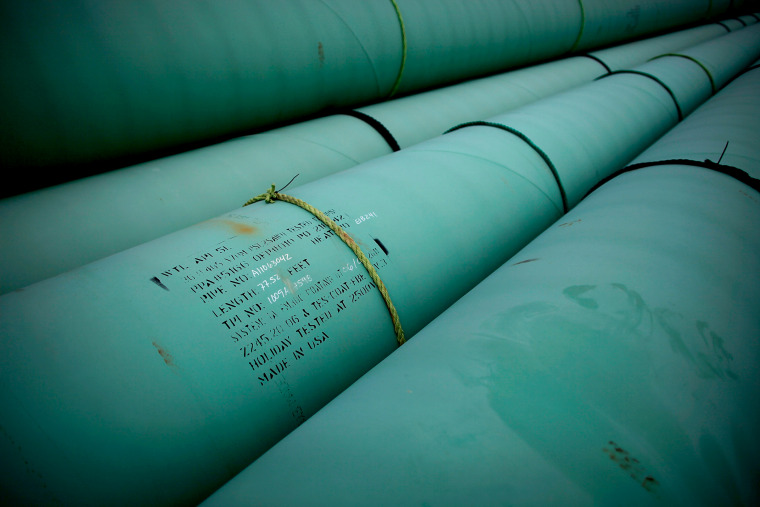The State Department released its final environmental study on the potential impact of the Keystone XL oil pipeline Friday, bringing it one step closer to approval and dealing a major blow to environmentalists.
The Environmental Impact Statement reported that the development of Alberta, Canada, tar sands to extract oil is enough of a foregone conclusion that denying the Keystone pipeline project would be unlikely to make any significant difference in the fight against catastrophic climate change. Environmentalists have pointed to the multiple oil spills that have already occurred along existing lengths of pipeline and to grim scientific predictions about climate change as reason for the government to reject the proposal. Secretary of State John Kerry must now decide whether or not Keystone XL is a project that serves the national interest.
The White House said Friday that a decision to move forward on the pipeline would be made "only after careful consideration."
"The president has clearly stated that the project will be in the national interest only if it does not significantly exacerbate the problem of carbon pollution," White House spokesman Matt Lehrich told NBC News' Peter Alexander. "The Final Supplemental Environmental Impact Statement includes a range of estimates of the project's climate impacts, and that information will now need to be closely evaluated by Secretary Kerry and other relevant agency heads in the weeks ahead. A decision on whether the project is in the national interest will be made only after careful consideration of the SEIS and other pertinent information, comments from the public, and views of other agency heads."
The pipeline, which would run from Canada to Texas, has been a source of controversy for the Obama administration for years. While it had been touted as a source for much-needed jobs, it will likely lead to less than 4,000 temporary construction jobs. The other 38,000 jobs the report says will be created would also be for the two-year construction period. Tar sands oil also produces more climate change-causing gas than other forms of oil production.
President Obama has spoken repeatedly about the need to fight climate change, most recently when he called climate change "a fact" in his State of the Union speech. However, since the collapse of Copenhagen climate talks in 2009, there has been little progress on international climate treaties that could lead to more significant action to reverse the environmental damage that has already been done.
